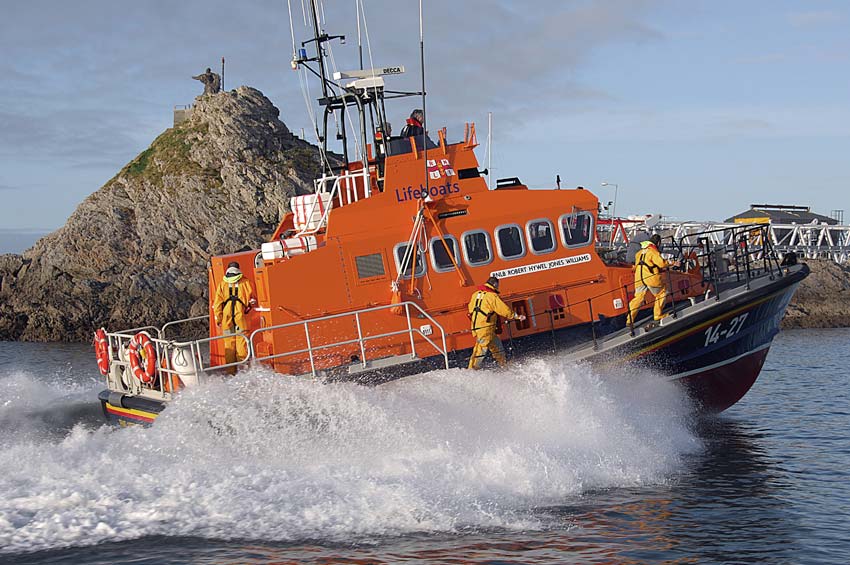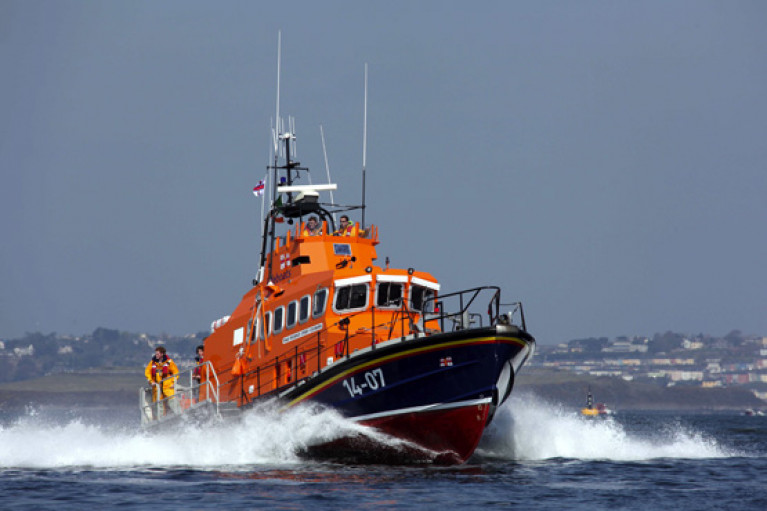Courtmacsherry RNLI’s all-weather lifeboat was called out yesterday afternoon (Sunday 21 February) to a surfer in difficulty off Garrettstown Beach near the Old Head of Kinsale.
The Trent class lifeboat with a crew of five was under way within minutes of the 3.40pm call.
However, upon reaching the scene less than 15 minutes later, they learned that the surfer had managed to get ashore with the help of family members.
“It was great to see the fast response of so many of our volunteer crew again today, when their bleepers activated, which ensured that we were at the scene very quickly,” said Brian O'Dwyer, Courtmacsherry RNLI volunteer lifeboat operations manager.
Elsewhere, Fenit RNLI’s volunteer crew were tasked around 1pm to reports of two upturned kayaks in the Banna Strand area.
The station launched both its all-weather and inshore lifeboats, with a full crew on both vessels.
 File image of Fenit RNLI’s all-weather lifeboat | Photo: RNLI/Fenit
File image of Fenit RNLI’s all-weather lifeboat | Photo: RNLI/Fenit
On arrival at the scene of the reported sighting, the lifeboat crews were advised that the occupants of the kayaks were safe and accounted for, and their kayaks washed ashore shortly afterwards.
Fenit lifeboat press officer Jackie Murphy said the volunteers “were delighted that there was a safe and positive outcome for all concerned”.
Meanwhile, the RNLI stresses to all those taking part in any water activities or planning a visit to the coast during this extended lockdown to follow its water safety advice below, along with all new Government regulations, and stay safe in these different times for all rescue services:
- Have a plan — check the weather forecast, tide times and read local hazard signage.
- Keep a close eye on your family — on the beach, on the shoreline and in the water.
- Don’t allow your family to swim alone.
- Don’t use inflatables at all, at all on the sea.
- Make sure to wear a lifejacket at all times when taking to the sea in a boat.
- If you fall into the water unexpectedly, FLOAT TO LIVE. Fight your instinct to thrash around, lean back, extend your arms and legs, and float.
- In an emergency dial 999 or 112 immediately and ask for the coastguard. The rescue services are there to help you all.































































